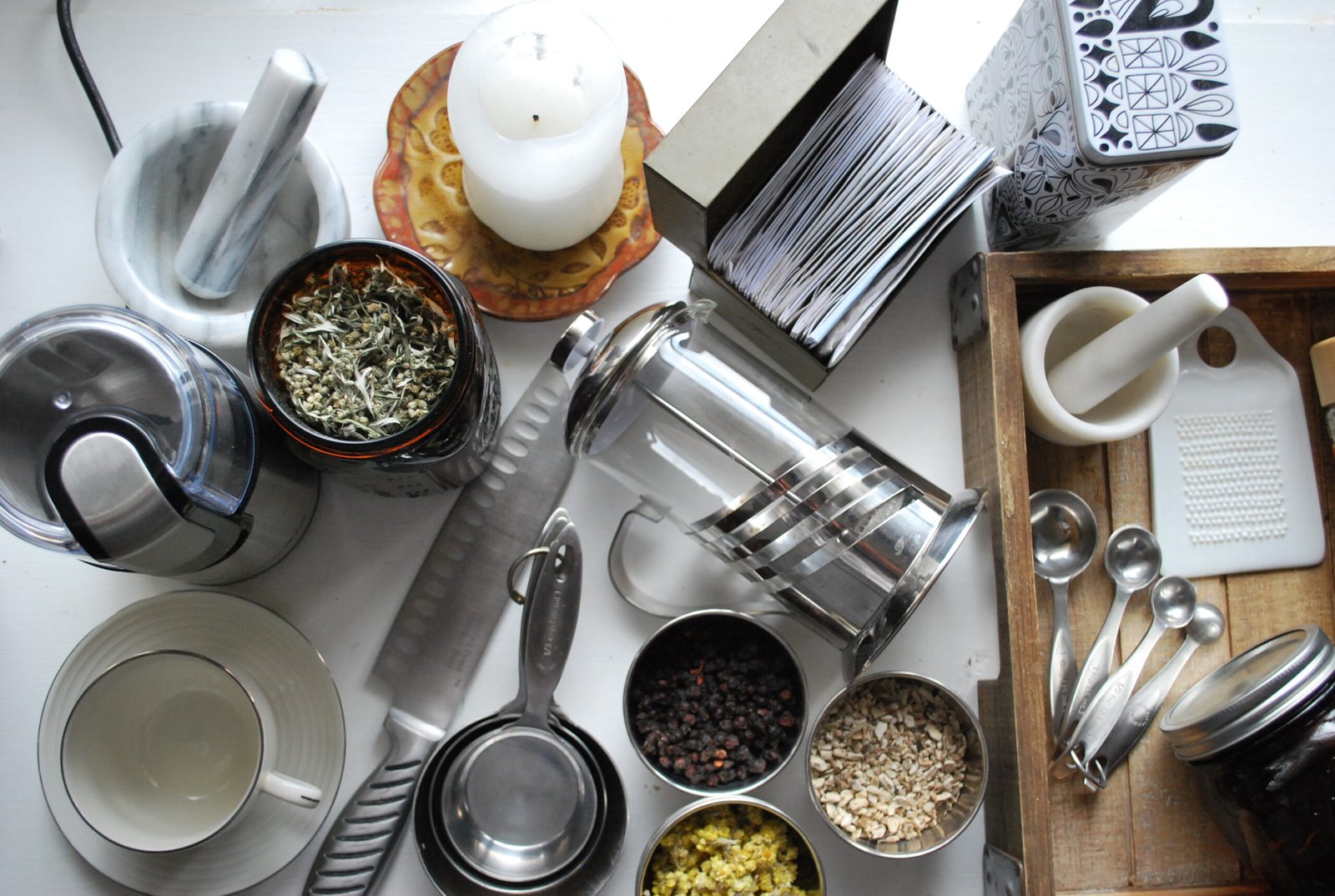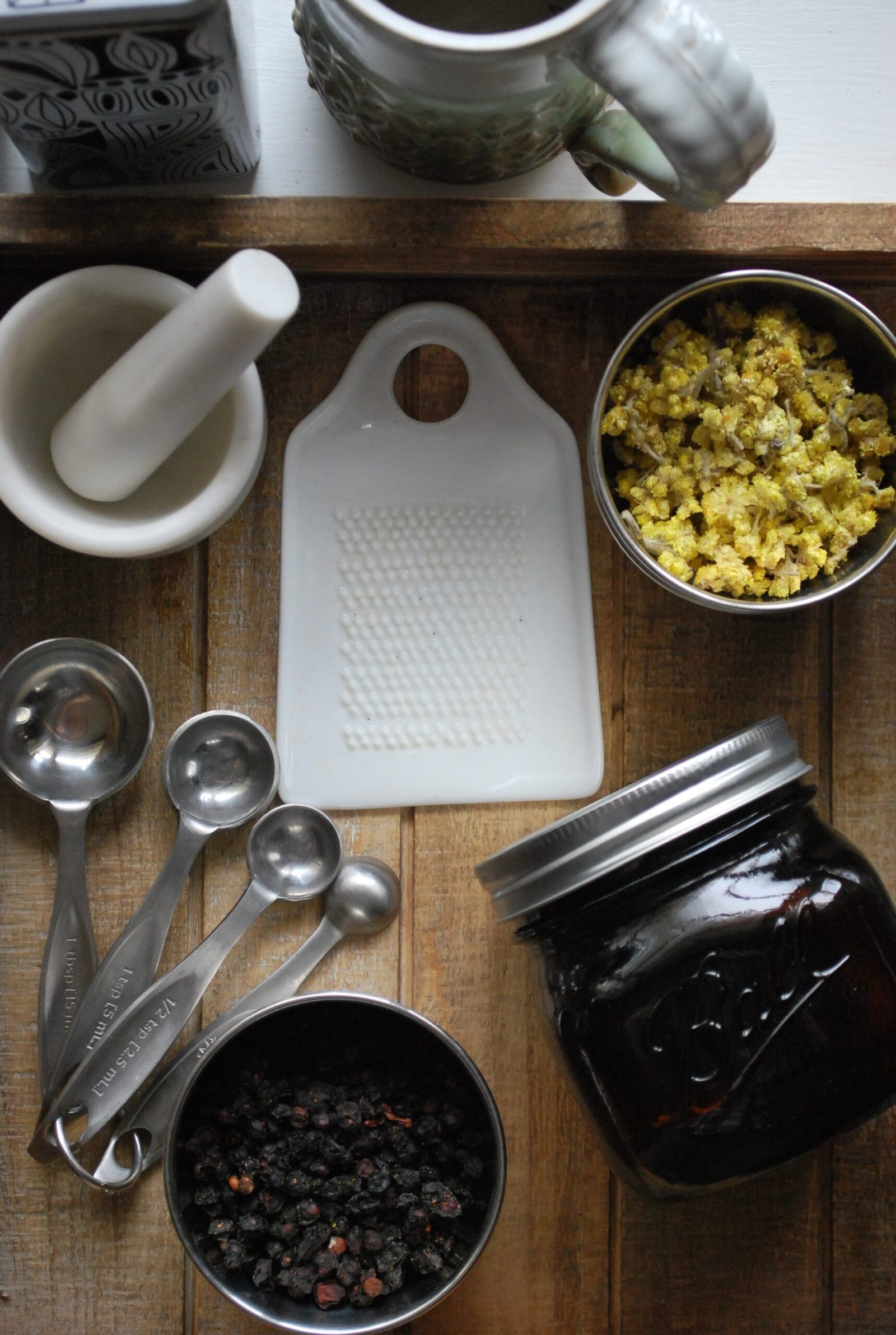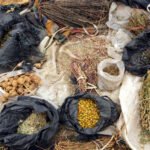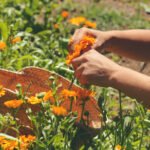Tools and Resources Every Herbalist Should Have
Herbalism is a practice rooted in knowledge, intuition, and experience. Whether you’re an aspiring herbalist or a seasoned professional, having the right tools and resources is crucial to your success. These tools not only support your practice but also ensure that you can offer the best care to your patients. Below are some of the most important tools and resources every herbalist should have to create effective, safe, and sustainable herbal remedies.
1. Plant Identification Guides
One of the first tools every herbalist needs is a reliable plant identification guide. Knowing how to identify plants accurately is essential for safe herbal practices. A good plant identification book should include detailed images, descriptions, and information about medicinal uses, toxicities, and growing conditions.
- Recommended Resources:
- The Peterson Field Guide to Medicinal Plants
- The Herbal Medicine Makers Handbook by James Green
- Medicinal Plants of the World by Ben-Erik van Wyk
2. Herb Drying Equipment
Drying herbs is a vital part of herbal medicine preparation. Having the right tools to dry herbs effectively helps preserve their medicinal properties. You can either air-dry herbs, use a dehydrator, or even purchase specialized herb-drying racks. A dehydrator is particularly useful for ensuring that herbs are dried at a consistent temperature, preserving their potency.
- Recommended Tools:
- Herb drying racks
- Electric dehydrators (such as Excalibur Dehydrator)
- String or twine for bundling herbs
- Mesh bags or paper bags for hanging and storing dried herbs
3. Herb Processing Equipment
Once you’ve harvested or purchased your herbs, processing them is the next step. Essential tools for this include cutting tools, pestles and mortars for grinding, and herbal infuser bags for creating tinctures, oils, and teas. High-quality equipment helps ensure the preservation of active compounds in the herbs.
- Recommended Tools:
- Mortar and pestle (for grinding dried herbs)
- Herb scissors or sharp knives
- Strainers or cheesecloth for tinctures and infusions
- Herbal infuser bags (for creating herbal teas)

4. Books and Online Databases
Books, journals, and online resources are key for deepening your herbal knowledge. A good collection of reference books and access to digital platforms will allow you to continue learning about new plants, preparations, and formulations.
- Recommended Resources:
- The Complete Medicinal Herbal by Penelope Ody
- The Earthwise Herbal by Matthew Wood
- Online resources like PubMed, PlantNet, or the American Herbalists Guild website
5. Sustainable Sourcing Tools
Sustainability is a top priority for modern herbalists. It’s important to ensure that the plants you use are sustainably sourced, whether they are wildcrafted or grown on your property. Sustainable sourcing tools can help you identify ethical suppliers and determine whether plants are endangered or over-harvested.
- Recommended Resources:
- The Wildcrafted Herbalist by Anne McIntyre (for guidance on sustainable wildcrafting)
- Online databases and apps like iNaturalist for tracking plant populations
- Websites like Sustainable Herbs Program for sourcing ethically grown herbs
6. Herbal Medicine Making Kits
Having a well-stocked herbal medicine-making kit is essential for creating remedies like tinctures, salves, and teas. A kit may include various tools like alcohol for tinctures, oils for infusions, beeswax for balms, and bottles for storing remedies. Pre-packaged kits are available, or you can create your own tailored to your needs.
- Recommended Tools:
- Jars and bottles for tinctures, oils, and infusions
- Droppers for measuring liquids
- Beeswax and oils for salves and balms
- Labels for documenting recipes and ingredients
7. Herbalist Journal or Notebook
An herbalist journal is essential for documenting your experiences with various plants and remedies. A journal allows you to track your observations, experiment with new formulas, and note any changes in plant preparations. This record-keeping helps you refine your practice and gain deeper insight into your herbal medicine journey.
- Recommended Tools:
- A blank or pre-structured herbalist journal for tracking plant properties and uses
- Digital tools like Evernote or Trello for organizing notes and recipes
- A field notebook for taking notes on plant identification in the wild
8. Herbal Workshops and Continuing Education
Herbalism is a field that evolves as new research emerges and new plant varieties are discovered. To stay current, herbalists should participate in workshops, conferences, and courses that expand their knowledge and skills. Many herbalists also engage in peer networks or study groups for ongoing education.
- Recommended Resources:
- Local herb schools or online platforms like The Herbal Academy
- Workshops at herbal conferences (e.g., American Herbalists Guild Annual Symposium)
- Online learning platforms like Coursera or Udemy for herbal medicine courses
9. Essential Oils and Aromatherapy Tools
Essential oils play an important role in many herbalist practices, from creating calming salves to making therapeutic diffusions. Aromatherapy tools, such as diffusers, rollers, and sprays, are essential for working with essential oils safely and effectively.
- Recommended Tools:
- Essential oil diffusers (ultrasonic or nebulizing)
- Roller bottles for creating blends
- Glass dropper bottles for dilution and storage of essential oils
- Aromatherapy reference books for learning about the medicinal uses of essential oils
10. Networking and Mentorship Resources
Herbalism is a community-based practice, and networking with other herbalists is essential for growth and support. Mentorship can be a powerful tool for learning practical, real-world applications of herbal medicine. Connecting with other practitioners can also foster a deeper understanding of cultural traditions, sustainable practices, and new plant discoveries.
- Recommended Resources:
- Herbalist networks, such as the American Herbalists Guild or local herb groups
- Social media communities (Instagram and Facebook groups dedicated to herbalism)
- Online forums and mentorship programs for connecting with experienced herbalists
Conclusion
Having the right tools and resources is key to an herbalist’s success in creating safe, effective, and sustainable remedies. Whether you are identifying plants, crafting tinctures, or staying informed through books and workshops, each resource serves to enhance your practice. As you grow in your herbalist journey, continuously updating your tools, engaging in lifelong learning, and connecting with the herbalist community will ensure that your work is not only effective but also respectful of the environment and traditions.



